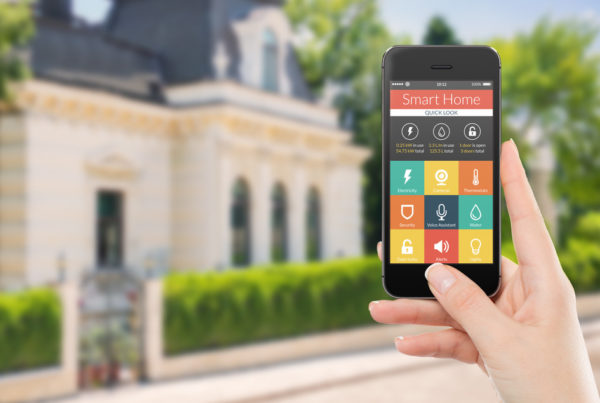The vision to interconnect your washing machine, refrigerator and even your windows by an internet connection, may soon be built into your next home. True control the of your home’s operation from your smartphone is rapidly approaching.
The redefinition of objects changes not only the form but the function of an object. It tandem, the modifications change the home from a static object into an interactive reflection of your life. In one example, the deadbolt for your front door has been computerized. The metal key is often gone and access has become a relative commodity. Owners can now control who has access, where and for how long right through a mobile app.
Over the past decades, what was seen as fanciable dreams is now being engineered into reality. The ideas of books and TV shows like “Star Trek” continue to find a growing place in our lives.
The bringing together of multiple devices in your home, working in tandem, is soon to be a reality. It requires an openness of spirit and vision in the manufacturing sector. “Without this kind of openness,” Samsung CEO BK Yoon stated in a recent keynote presentation, “there won’t be an ‘Internet of Things’ because the things will not fit together.”
What is the ‘Internet of Things’? It is a realm, in the near future, where multiple household items hold as valid a place on the Internet as do your smartphone and computer. In a few short years, it is widely proposed that many of the items in our homes, those we now see as independent and isolated, will all be interconnected.
When it comes to our homes, many believe the issue is a matter of redefining our vision of the world around us. To meet this challenge, Apple has embarked upon Homekit. This framework is designed to provide developers the tools “…for communicating with and controlling connected accessories in a user’s home.”
The market has been defined by our dreams, needs and technologies. As time quickly passes, we will see the marriage of what we once thought of as static and isolated. The idea of how and what we define as ‘home’ will quickly shift, as developers continue to provide us more control over our living spaces.

